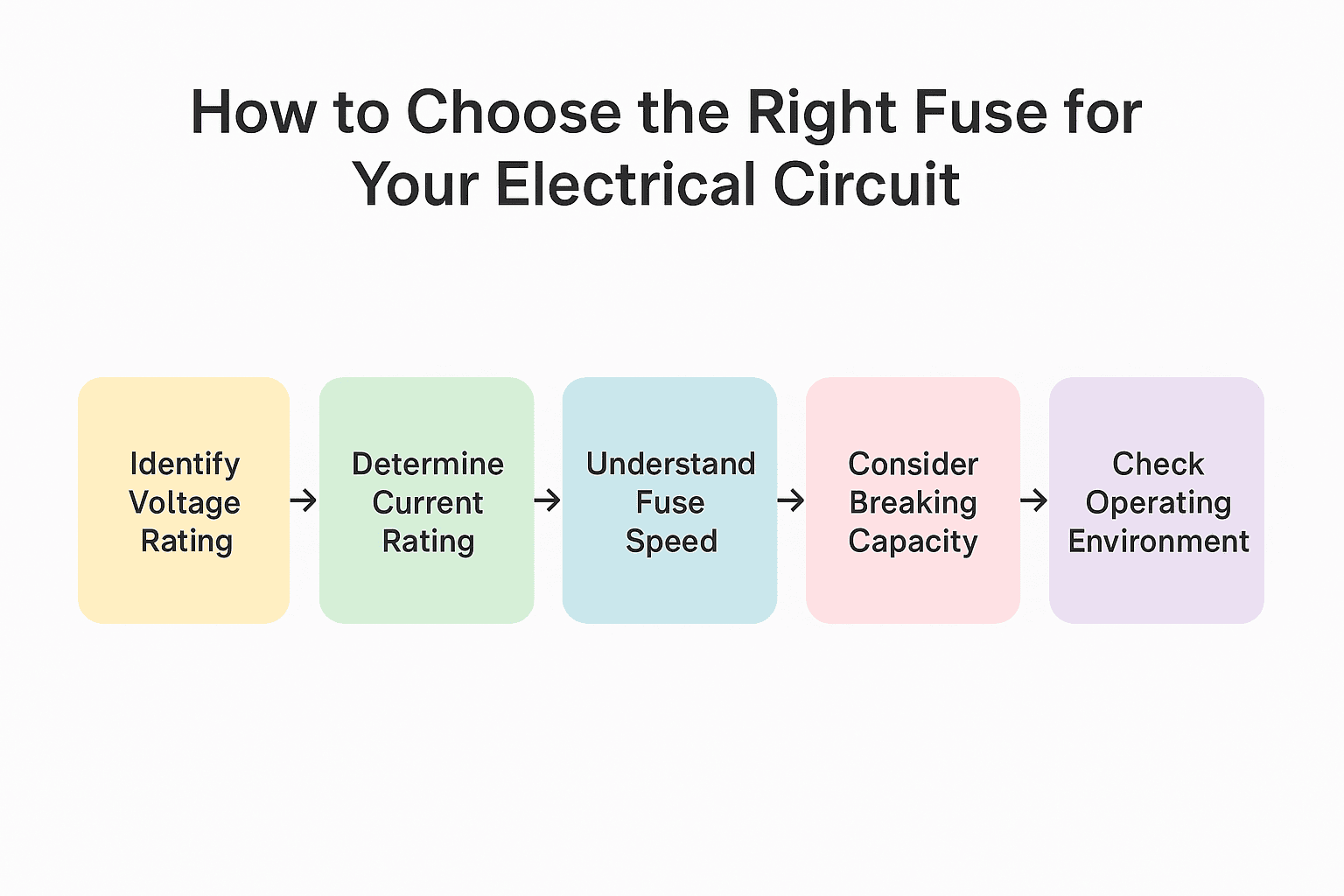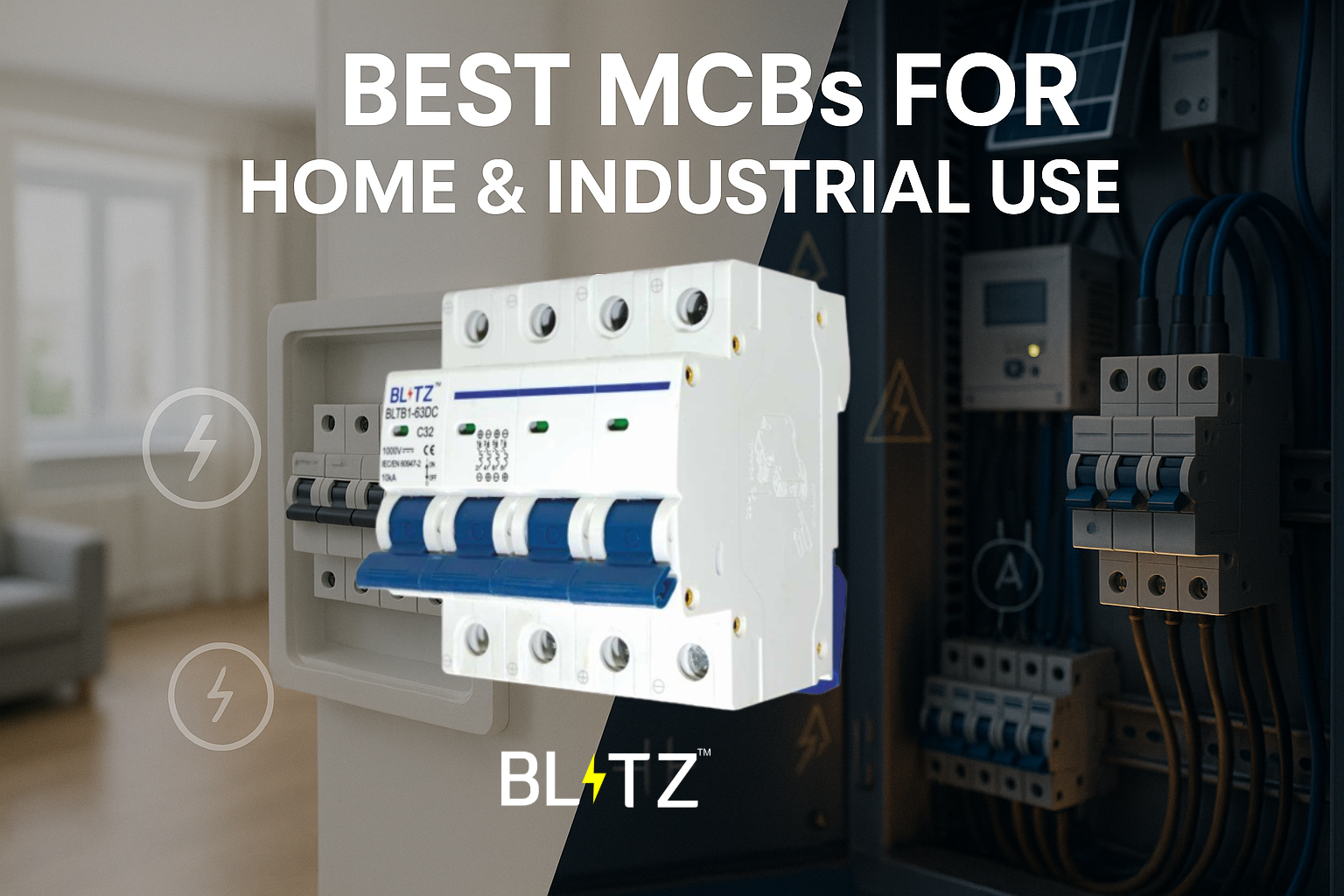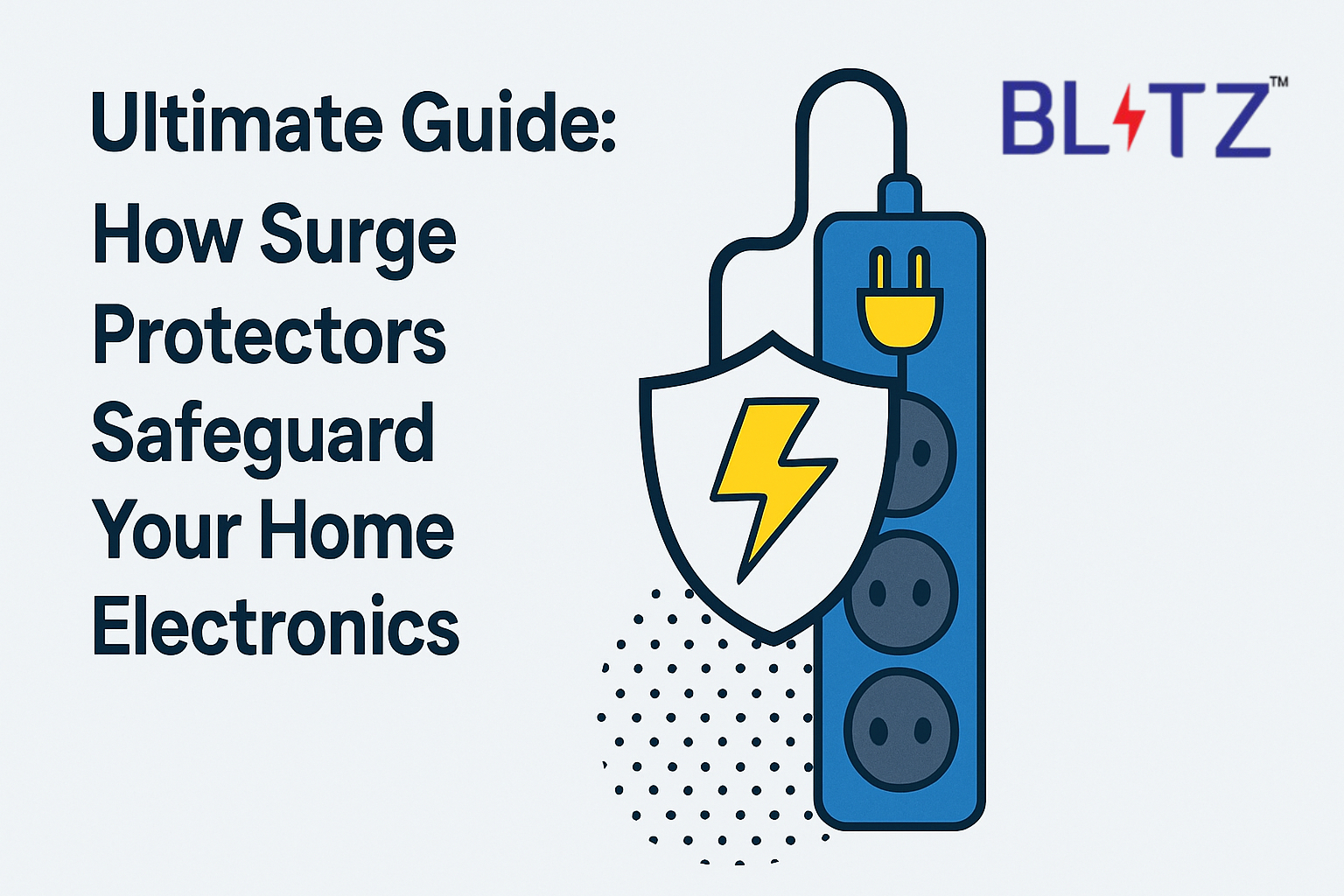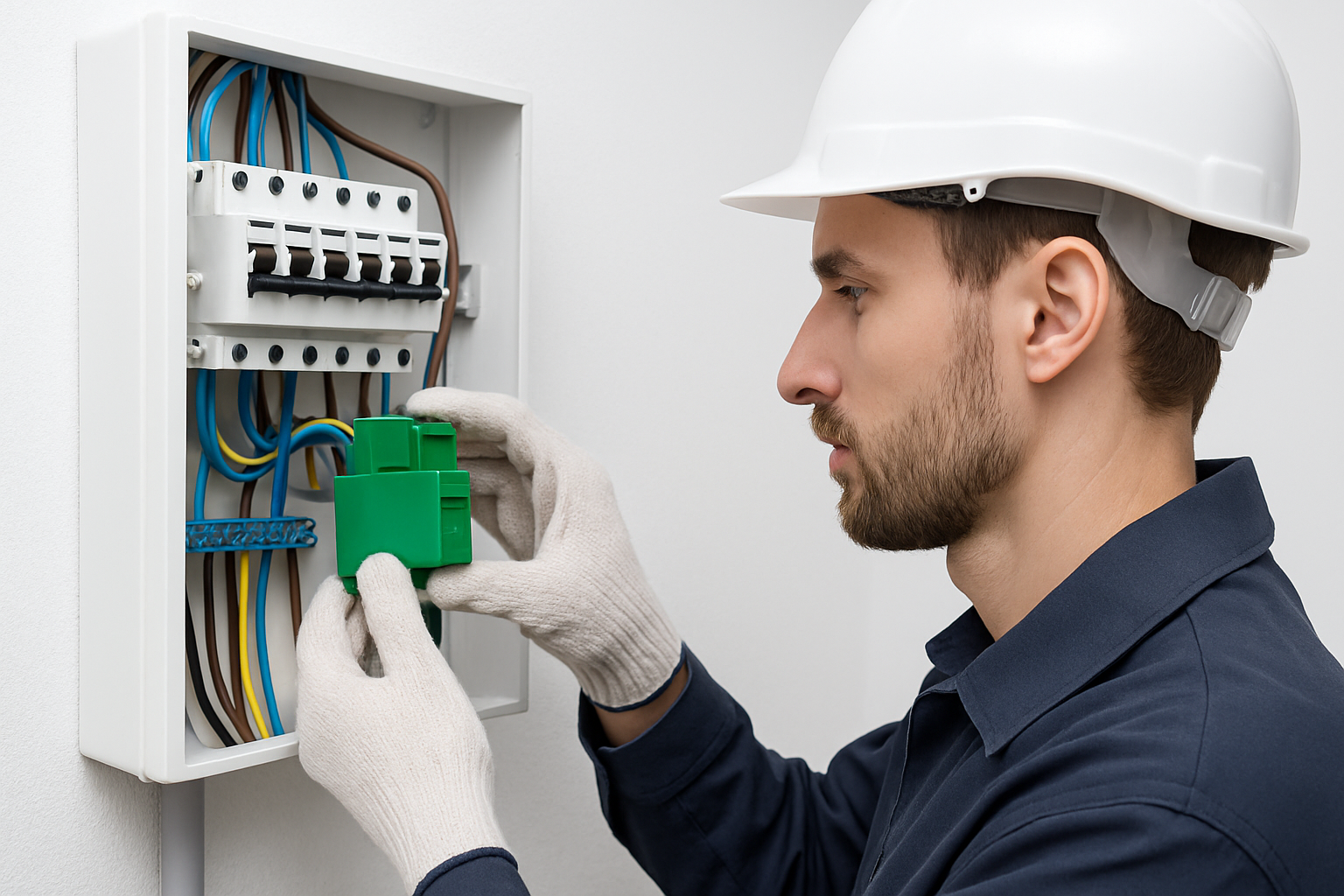
How to Choose the Right Fuse for Your Electrical Circuit
Learn how to choose the right fuse for your electrical circuit with expert tips on fuse types, ratings, and safety to keep your electrical system protected.
How to Choose the Right Fuse for Your Electrical Circuit
The fuse is your number one line of defense in case of electrical safety. It shields your appliances, wiring and even your life in case of a short circuit and overloads. Nevertheless, a lot of homeowners and electricians tend to pay less attention to one very important aspect the selection of the fuse. Choosing the wrong one may cause blown circuits, fire risks and unwarranted destruction.
In this blog we are going to take you through all you need to know about choosing the correct fuse to use in your electrical circuit -types and ratings, and installation considerations. You may be a homeowner, electrician or electrical engineer, but with this guide you will be able to make a safe, efficient and confident decision.
What is a Fuse and Why is It Important?
A fuse is a small, very simple and cheap device that guards electrical circuit against excessive currents flowing through it. It functions by disconnecting the circuit when the current in the circuit is greater than the rated capacity of the fuse, so that appliances or fire are not damaged by excessive heat.
Simply put, imagine a fuse is the bodyguard of your electrical circuit, it takes itself up to defend the other part of the system.
Key Functions of a Fuse:
- Avoids damage due to excessive current and short circuiting
- Secures cabling, switches and electric apparatus
- Lessens the chance of electrical fires
- Guarantees the safety and the life of your devices
Types of Fuses You Should Know
Different types of fuses exist in the market and before deciding on the type of fuse to use, it is important to know the available types. Each type has a particular purpose based on the nature of the circuit and the load that it is carrying.
1. Cartridge Fuses
These are cylindrical in shape and enclosed in a non-combustible body. They come in two main types:
- HRC (High Rupturing Capacity) Fuses – Designed for high current loads and industrial applications.
- Low Voltage Cartridge Fuses - Suited to residential and light commercial applications.
Better: Air conditioners, refrigerators, heavy duty appliances.
2. Rewirable Fuses (Kit-Kat Type)
These fuses permit you to replace after the fuse wire blows. They are less reliable than cartridge type even though they are economical.
3. Blade Fuses
Commonly used in automotive applications, blade fuses are small, color-coded, and easy to replace.
4. Resettable (PTC) Fuses
Also known as polymeric fuses, they reset automatically after a fault clears. These are popular in electronic devices.
Best for: Computers, chargers, and circuit boards.
5. Thermal Fuses
They are designed to interrupt the circuit when a specified temperature is attained, and protect against overheating rather than overcurrent.

Step by Step Guide on How to Select the Correct Fuse
To select the correct fuse, it does not simply come off the shelf and you need some fundamental knowledge of your electrical system.
Here’s how to make the right choice:
1. Identify the Voltage Rating
Your circuit operating voltage must not be a magnitude smaller than the voltage rating of your fuse.
For instance:
When your circuit will be 230 V AC you should select a 230 V or greater fuse.
Always use a fuse with a higher circuit voltage rating than the circuit voltage- a fuse with a lower circuit voltage rating may not cut the current off.
2. Determine the Current Rating
The current rating is the maximum current the fuse can carry without blowing.
- Check the current consumption of the device or circuit.
- Choose a fuse with a rating slightly above the circuit’s normal current (usually 125–150% of the load current).
3. Understand the Fuse Speed (Blow Type)
Fuses are classified based on how quickly they react to overcurrent:
- Fast-Blow Fuses: React instantly to sudden surges (good for sensitive electronics).
- Slow-Blow (Time-Delay) Fuses: This type of fuse does not blow until temporary surges have passed (used on motors or transformers with startup currents).
Hint: Do not keep one fuse speed with another use.
4. Consider the Breaking Capacity
The breaking capacity of a fuse means the current of fault that the fuse can interrupt safely and without damage or explosion. Industrial uses may demand high rupturing capacity (HRC) fuses, but the standard capacity ones may be used at home.
Always make sure that the breaking capacity is greater than the fault current, which might be expected.
5. Check the Operating Environment
The performance of fuses is influenced by the environmental conditions.
- Heat Temperatures: Decrease carrying capacity.
- Moist Conditions: You need fuse holders that are resistant to corrosion.
- Outdoor Installations: Needs to have weatherproof enclosures.
For solar systems or outdoor panels, ensure the fuse has UV resistance and IP-rated casing.
6. Size and Mounting Type
Fuses come in different shapes and mounting types — plug-in, screw-type, or cartridge. Choose one compatible with your fuse holder or panel design.
7. Compliance with Standards
Always choose fuses that comply with international safety standards such as:
- IEC 60269
- UL 248
- BS 1362
Certified fuses ensure reliable performance and safety in all conditions.
Applications of Different Fuses
| Fuse Type | Applications |
|---|---|
| Cartridge Fuse | Industrial machines, air conditioners |
| Blade Fuse | Automotive systems |
| Thermal Fuse | Heating equipment |
| Rewirable Fuse | Temporary domestic circuits |
| Resettable Fuse | Consumer electronics |
How to Maintain and Replace Fuses Safely
- Turn Off the Main Power before replacing any fuse.
- Use insulated tools to prevent shocks.
- Check for the cause of failure before inserting a new fuse.
- Use the same rating and type as the original fuse.
- Label the fuse box.
It is possible to check your circuits regularly to make sure they are safe and working.
FAQs
Conclusion
The process of selecting the correct fuse can seem an inconsequential step in your life, yet this choice will have significant consequences on your safety in terms of electricity. Knowing the voltage, current, speed and capacity you may choose a fuse that will guarantee many years of reliability, safety and efficiency.
At Blitz Electrical we know that safety begins with the minutest of things. It does not matter whether you are replacing your fuse box or installing a new circuit, you should invest in high quality and certified fuses, which fit the needs of your system.




